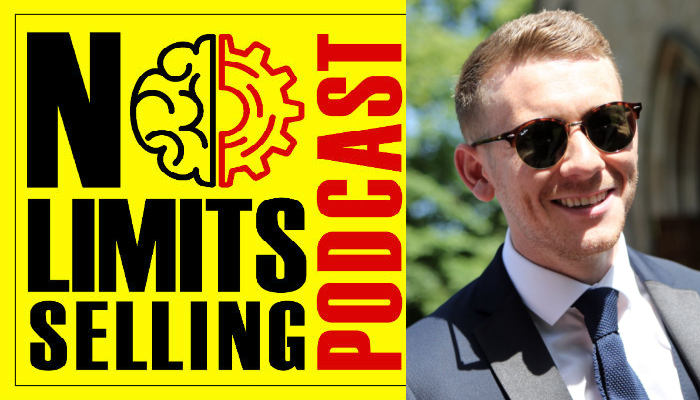Pete Arnott Million Dollar Master Sales Copywriter
On Episode 82 of The No Limits Selling Podcast, we have Pete Arnott, a direct response copywriter who has generated more than 8-figures in sales. He has engineered successful campaigns for NYT bestsellers, billion-dollar marketing companies, and dozens of business leaders.

Contact Pete:
Find more podcast interviews at https://nolimitsselling.com/
[EDITOR’S NOTE: This podcast is sponsored by No Limits Selling. It is a fun, fast-paced podcast that delivers hard-fought business advice that you can implement today to improve your sales and performance]
Interested In Our Real Estate Coaching Services? Explore Our Website: Link
Feeling Not Well Today? You Can Use Our Mindset Boosters App To amp Up Your Mood: Link
Find us on Social Media:
LinkedIn | Facebook community | Instagram
Like what do you listen to? Subscribe to our podcast!
Ready to become fearless? We can help you become fearless in 60 days so you accomplish more in your career Schedule A 15 min Call with UmarSummary
Introduction
The podcast begins with an introduction of Pete Arnott, a renowned direct response copywriter who has made a significant impact in the industry by generating over 8-figures in sales. The host highlights Pete's accomplishments and sets the stage for an insightful conversation about his journey and strategies in the field of copywriting.
Pete's Journey into Copywriting
Pete shares his journey into the world of copywriting, which started in his early twenties. He was initially involved in various jobs, but his interest in writing and persuasion led him to the field of copywriting. Pete emphasizes the importance of continuous learning and adapting to new trends in the industry.
The Art of Copywriting
Pete delves into the art of copywriting, explaining that it's not just about writing but understanding the psychology of the target audience. He shares his approach to creating compelling copy, which involves thorough research, understanding the customer's needs, and crafting a message that resonates with them. He also stresses the importance of testing different versions of copy to see what works best.
Challenges in Copywriting
Pete discusses the challenges he has faced in his career, including dealing with difficult clients and staying updated with the ever-changing digital marketing landscape. He shares how he overcomes these challenges by maintaining a positive mindset, continuously learning, and staying adaptable.
Success Stories and Accomplishments
Pete shares some of his success stories and accomplishments, including campaigns that have generated millions in sales. He attributes his success to his ability to understand the customer's needs and craft a message that resonates with them. He also highlights the importance of building strong relationships with clients and delivering consistent results.
Advice for Aspiring Copywriters
Towards the end of the podcast, Pete offers advice for aspiring copywriters. He encourages them to continuously learn and improve their skills, understand the psychology of their target audience, and not be afraid to test different strategies. He also emphasizes the importance of resilience and perseverance in this competitive industry.
Conclusion
In conclusion, the podcast presents an insightful journey into the life and career of Pete Arnott, a successful direct response copywriter who has generated over 8-figures in sales. From his humble beginnings to his rise in the industry, Pete's story is a testament to the power of continuous learning, understanding customer psychology, and the art of persuasive writing. Despite facing numerous challenges, Pete's resilience and adaptability have led to significant accomplishments, including multi-million dollar campaigns. His advice to aspiring copywriters emphasizes the importance of skill development, audience understanding, and the courage to experiment with different strategies.
The podcast ends on an optimistic note, highlighting the vast opportunities in the evolving landscape of copywriting and digital marketing for those willing to adapt and learn.
Questions & Answers
Who is Pete Arnott?
What is Pete Arnott's approach to copywriting?
What challenges has Pete Arnott faced in his copywriting career?
What are some of Pete Arnott's notable accomplishments?
What advice does Pete Arnott have for aspiring copywriters?
What is the future of copywriting according to Pete Arnott?
Don’t miss this opportunity to transform your real estate career with one-on-one coaching. As an experienced real estate coach, I, Umar Hameed, am dedicated to helping you unlock your full potential and achieve your real estate goals. To learn more about who am I and my clients ↓
If you’re ready to take the next step, book an appointment with me today and begin your journey toward success in the real estate industry.
